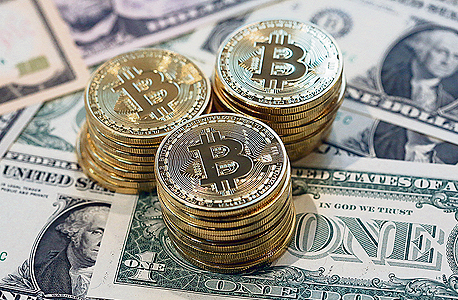Opinion
Bitcoin’s Killer App Lives Up to its Name
After deep-diving into the Bitcoin scene, Israeli-born entrepreneur Zohar Levkovitz is back with some unpleasant insights he feels must be said
For daily updates, subscribe to our newsletter by clicking here.
So I did. And now I'm back.
 Bitcoin
Bitcoin
What did I come back with? First of all, an intense urge to wash my hands. Really scrub them. I shook a few hands this week whose previous whereabouts I can only speculate about and shudder.
What else did I find? A nice idea that started as a romantic, naïve hallucination about changing the world. That originated with some tech workers I can just imagine rolling a joint the size of small country, listening to Janis Joplin. A nice idea about empowering the masses. No governments, no supervision or regulation.
Most of us in the tech industry create something. Some of us more, some of us less, but we at least generate something. The Bitcoin industry of today is generating profit. That's it. No product. No third world beneficiaries. The world is not going to get better as a result. Can I say yuck?
And guess who's jumping on the bandwagon? The salt of the earth. The refugees of binary options and internet porn. Not everyone, of course. Good people have been blown off course before. But it's mostly the drags of humanity. An unrelated philosophical question: is a stereotype that's true in 100% of cases still a stereotype, or does it become the rule?
Here's an insight: You want to invest in cryptocurrency? Don’t ask the entrepreneurs what they did before. The urgent need for a shower will sour you on the investment.
So I discovered an industry that began to the soundtrack of Janis Joplin and Pink Floyd's "mother should I trust the government," and then turned from a nice, naïve idea into a speculative for-profit industry. Super cool.
What else? It's an industry whose main "killer app" consists of payments certain people don't want unearthed. It's the first time I've seen a "killer app" that actually lives up to the name. A wonderful infrastructure for systematic tax evasion and the promotion of un-altruistic objectives. I'm not a huge fan of governments, they're never perfect, but they're better than the alternative, which usually comes with a lot more headless people.
I received countless messages along the lines of "governments are done for, they can't stop us." Really? They can't? You really think the seamstresses at the Pentagon or the IRS have started to sew a white flag? I may not understand a lot in Bitcoin, but I have a fair understanding of the way things work in the U.S. The U.S. government really likes being the only one printing dollars. Americans also really like their economy. I really can't see them giving up their laws about terrorism financing or money laundering or tax payments just because of some speculative invention.
While we're at it, do we really want to weaken our governments? Will the online porn promotion startup founder pave roads in Utah? Will the binary options hawker give you medical attention when you drop your bitcoin pouch on your foot?
And we haven't even talked about how there are hundreds or more Bitcoins out there in the world right now, and how the promise that bitcoins are immune to inflation due to a limit on supply has been voided by division and fractioning and lies. Even Milken and Madoff are suddenly looking pretty clean compared to some of the guys in this industry.
- The Four Gifts of Humanity that made Bitcoin Possible
- Refunding Hacked ICO Investors Helped Us Move Forward, Says Cryptocurrency Company CEO
- Blockchain-based Cryptocurrencies Will Bring On a True Sharing Economy, Says Colu CEO
Bitcoin might even pass the $10,000 mark; that's just peachy. But what exactly is the gospel here? How many people will make money versus how many people will lose? Bottom line, we're seeing the creation of another purely speculative and checkless financial tool. Not interested. But good luck if you want in. You don't always have to take a good look in the mirror.
Zohar Levkovitz is the founder and former CEO of Amobee Inc., the mobile marketing company sold to Singapore Telecommunications Ltd. for $300 million in 2012. He is also a former chief technology officer of Comverse Technology Inc.



